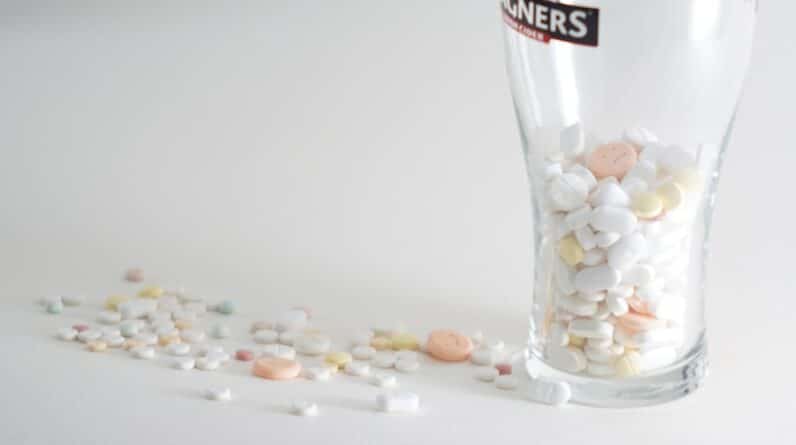Vytorin is a prescription medication that combines two active ingredients: ezetimibe and simvastatin. This combination works to lower cholesterol levels in your body by reducing the absorption of cholesterol from your diet and inhibiting the production of cholesterol in the liver. If you have been prescribed Vytorin, it is likely because your healthcare provider believes that managing your cholesterol levels is crucial for your overall health, particularly if you are at risk for heart disease or have already experienced cardiovascular issues.
However, like any medication, Vytorin comes with its own set of potential side effects that you should be aware of. Common side effects of Vytorin may include muscle pain, fatigue, and gastrointestinal issues such as diarrhea or abdominal pain. While these side effects can be bothersome, they are often manageable.
However, it is essential to monitor your body’s response to the medication closely. In rare cases, Vytorin can lead to more severe side effects, such as liver damage or a serious muscle condition known as rhabdomyolysis. If you experience symptoms like dark urine, jaundice, or severe muscle weakness, it is crucial to contact your healthcare provider immediately.
Understanding these potential side effects can help you make informed decisions about your treatment plan and discuss any concerns with your doctor.
Key Takeaways
- Vytorin is a medication used to lower cholesterol levels, but it may have side effects such as muscle pain and liver problems.
- Natural alternatives for cholesterol control include plant sterols, soluble fiber, and omega-3 fatty acids found in foods like nuts, seeds, and fish.
- Dietary changes for lowering cholesterol involve reducing saturated and trans fats, increasing fiber intake, and consuming more fruits, vegetables, and whole grains.
- Regular exercise and physical activity can help manage cholesterol levels by increasing HDL (good) cholesterol and lowering LDL (bad) cholesterol.
- Herbal supplements and remedies like garlic, green tea, and red yeast rice may help lower cholesterol levels, but it’s important to consult with a healthcare provider before using them.
- There are prescription medication alternatives to Vytorin, such as statins, bile acid sequestrants, and PCSK9 inhibitors, which may be more suitable for some individuals.
- Lifestyle changes for better cholesterol management include quitting smoking, limiting alcohol intake, managing stress, and maintaining a healthy weight.
- Consultation with healthcare providers is essential for developing a personalized cholesterol control plan that takes into account individual health conditions and medication interactions.
Natural Alternatives for Cholesterol Control
If you are looking for ways to manage your cholesterol levels without relying solely on medications like Vytorin, there are several natural alternatives that you might consider. One of the most effective approaches is to incorporate lifestyle changes that promote heart health. For instance, adopting a diet rich in fruits, vegetables, whole grains, and healthy fats can significantly impact your cholesterol levels.
Foods high in soluble fiber, such as oats and beans, can help lower LDL (bad) cholesterol by binding to it in the digestive system and facilitating its removal from the body. In addition to dietary changes, certain natural supplements may also aid in cholesterol management. Omega-3 fatty acids, found in fish oil and flaxseed oil, have been shown to improve heart health by lowering triglycerides and raising HDL (good) cholesterol levels.
Plant sterols and stanols, which are found in fortified foods and supplements, can also help reduce cholesterol absorption in the intestines. By exploring these natural alternatives, you can take a proactive approach to managing your cholesterol levels while minimizing reliance on prescription medications.
Dietary Changes for Lowering Cholesterol

Making dietary changes is one of the most effective strategies for lowering cholesterol levels. You might start by focusing on reducing saturated fats found in red meat and full-fat dairy products. Instead, consider incorporating lean proteins such as chicken, turkey, and fish into your meals.
Additionally, replacing saturated fats with healthier unsaturated fats—like those found in olive oil, avocados, and nuts—can help improve your cholesterol profile. Another important aspect of dietary changes is increasing your intake of fiber-rich foods. Soluble fiber can be particularly beneficial for lowering LDL cholesterol.
Foods such as oats, barley, beans, lentils, fruits like apples and pears, and vegetables like carrots and Brussels sprouts are excellent sources of soluble fiber. By including these foods in your daily diet, you can help reduce cholesterol levels naturally while also promoting overall digestive health. Remember that small changes can lead to significant improvements over time; even minor adjustments to your diet can have a positive impact on your cholesterol levels.
Exercise and Physical Activity for Managing Cholesterol
Regular physical activity is another crucial component of managing cholesterol levels effectively. Engaging in aerobic exercises such as walking, jogging, cycling, or swimming can help raise HDL cholesterol while lowering LDL cholesterol and triglycerides. Aim for at least 150 minutes of moderate-intensity aerobic activity each week; this could be broken down into manageable sessions throughout the week.
Not only does exercise help improve your cholesterol profile, but it also contributes to overall cardiovascular health by strengthening your heart and improving circulation. In addition to aerobic exercise, incorporating strength training into your routine can further enhance your cholesterol management efforts. Building muscle mass through resistance training can increase your metabolism and promote fat loss, which may positively influence your cholesterol levels.
Whether you choose to join a gym or engage in home workouts using bodyweight exercises or resistance bands, finding an enjoyable physical activity will make it easier to stick with a consistent exercise routine. Remember that every bit of movement counts; even small changes like taking the stairs instead of the elevator or going for short walks during breaks can contribute to better cholesterol management.
Herbal Supplements and Remedies for Lowering Cholesterol
Herbal supplements have gained popularity as natural remedies for managing cholesterol levels. One well-known option is garlic, which has been shown to have a modest effect on lowering total cholesterol and LDL cholesterol levels. You might consider incorporating fresh garlic into your meals or taking garlic supplements after consulting with a healthcare provider.
Another herbal remedy worth exploring is red yeast rice, which contains a natural statin-like compound that may help lower cholesterol levels effectively. Additionally, artichoke leaf extract has been studied for its potential to reduce total cholesterol and LDL cholesterol while increasing HDL cholesterol. Other herbs such as turmeric and ginger may also offer anti-inflammatory benefits that support heart health.
However, it is essential to approach herbal supplements with caution; not all supplements are created equal, and their effectiveness can vary widely. Always consult with a healthcare professional before starting any new supplement regimen to ensure it aligns with your health goals and does not interact with any medications you may be taking.
Prescription Medication Alternatives to Vytorin

If you find that Vytorin is not the right fit for you due to side effects or personal preferences, there are several alternative prescription medications available for managing cholesterol levels. Statins are among the most commonly prescribed medications for lowering LDL cholesterol; options include atorvastatin and rosuvastatin. These medications work similarly to simvastatin by inhibiting cholesterol production in the liver but may have different side effect profiles that could be more tolerable for you.
Another class of medications known as PCSK9 inhibitors has emerged as a powerful option for individuals with high cholesterol who do not respond well to statins or have familial hypercholesterolemia. These injectable medications can significantly lower LDL cholesterol levels and may be suitable for those at high risk for cardiovascular events. Additionally, bile acid sequestrants like cholestyramine can help lower cholesterol by binding bile acids in the intestine and promoting their excretion.
Discussing these alternatives with your healthcare provider can help you find a medication that aligns with your health needs and lifestyle.
Lifestyle Changes for Better Cholesterol Management
Beyond diet and exercise, making comprehensive lifestyle changes can significantly impact your ability to manage cholesterol levels effectively. One of the most critical aspects is maintaining a healthy weight; even modest weight loss can lead to improvements in cholesterol levels and overall heart health. If you are overweight or obese, consider setting realistic weight loss goals through a combination of dietary changes and increased physical activity.
Additionally, managing stress is vital for maintaining healthy cholesterol levels. Chronic stress can lead to unhealthy coping mechanisms such as overeating or neglecting physical activity, both of which can negatively affect your cholesterol profile. Incorporating stress-reduction techniques such as mindfulness meditation, yoga, or deep-breathing exercises into your daily routine can help you manage stress more effectively.
By addressing various aspects of your lifestyle holistically, you can create a sustainable plan for better cholesterol management that supports both physical and mental well-being.
Consultation with Healthcare Providers for Personalized Cholesterol Control Plan
Ultimately, the most effective way to manage your cholesterol levels is through collaboration with healthcare providers who understand your unique health needs. Regular check-ups allow you to monitor your cholesterol levels and assess the effectiveness of any lifestyle changes or medications you may be using. Your healthcare provider can help you develop a personalized plan tailored to your specific circumstances, taking into account factors such as age, family history, existing health conditions, and lifestyle preferences.
Don’t hesitate to voice any concerns or questions during these consultations; open communication is key to finding the best approach for managing your cholesterol levels effectively. Whether you are considering dietary changes, exercise routines, herbal supplements, or alternative medications, having a supportive healthcare team can empower you to take charge of your heart health confidently. By working together with professionals who prioritize your well-being, you can create a comprehensive strategy that promotes long-term success in managing your cholesterol levels and enhancing your overall quality of life.
If you are looking for alternatives to Vytorin for cholesterol control, you may also be interested in learning about the importance of nutrition in managing your health. According to this article, nutrition plays a crucial role in maintaining overall well-being and can have a significant impact on cholesterol levels. Incorporating supplements into your diet can also be beneficial, as discussed in this article. Additionally, finding the best multivitamin for men can help support heart health and cholesterol management, as highlighted in this article. By focusing on nutrition and supplementation, you can take control of your cholesterol levels without the side effects of medications like Vytorin.
FAQs
What is Vytorin?
Vytorin is a prescription medication that contains a combination of ezetimibe and simvastatin. It is used to lower cholesterol levels in the blood.
What are the common side effects of Vytorin?
Common side effects of Vytorin may include headache, muscle pain, diarrhea, and nausea. In rare cases, it may also cause liver problems.
Are there alternatives to Vytorin for cholesterol control?
Yes, there are several alternatives to Vytorin for cholesterol control. These alternatives include other statin medications, such as atorvastatin and rosuvastatin, as well as non-statin medications like ezetimibe and bile acid sequestrants.
What are the potential benefits of using alternatives to Vytorin?
Using alternatives to Vytorin may help individuals who experience side effects from Vytorin find a medication that is better tolerated. Additionally, some individuals may find that a different medication is more effective at lowering their cholesterol levels.
How can I determine the best alternative to Vytorin for my cholesterol control?
It is important to consult with a healthcare professional to determine the best alternative to Vytorin for your cholesterol control. Your healthcare provider can assess your individual health needs and risk factors to recommend the most appropriate medication for you.
Are there lifestyle changes that can help with cholesterol control?
Yes, lifestyle changes such as following a healthy diet, engaging in regular physical activity, maintaining a healthy weight, and avoiding tobacco smoke can all help with cholesterol control. These changes may be recommended in conjunction with medication or as an alternative to medication, depending on individual circumstances.






